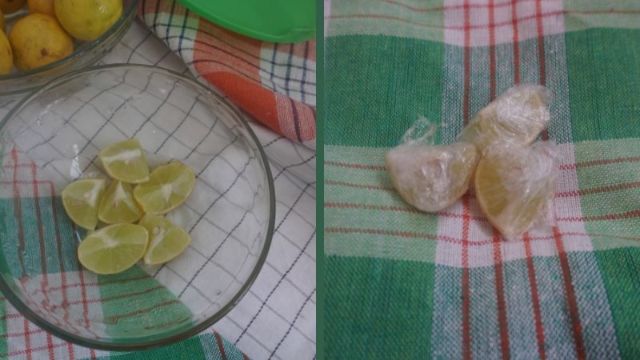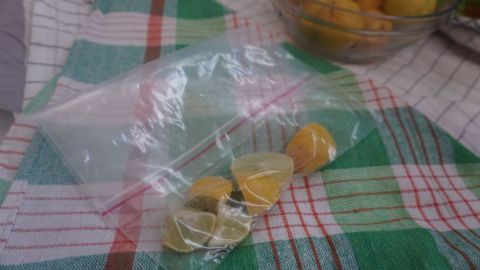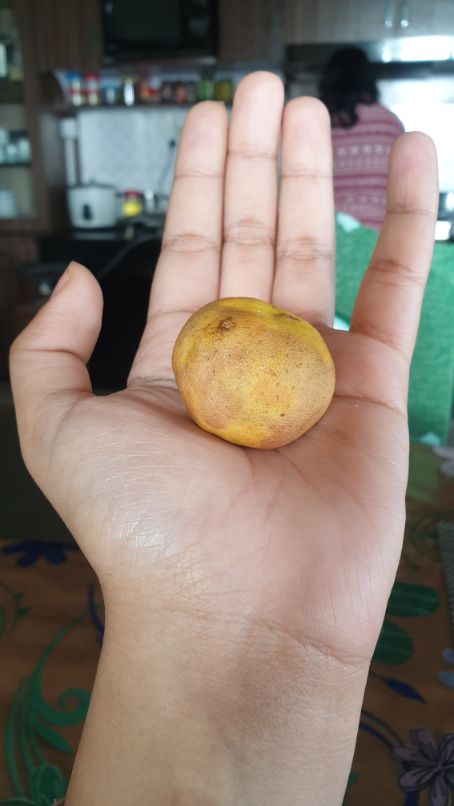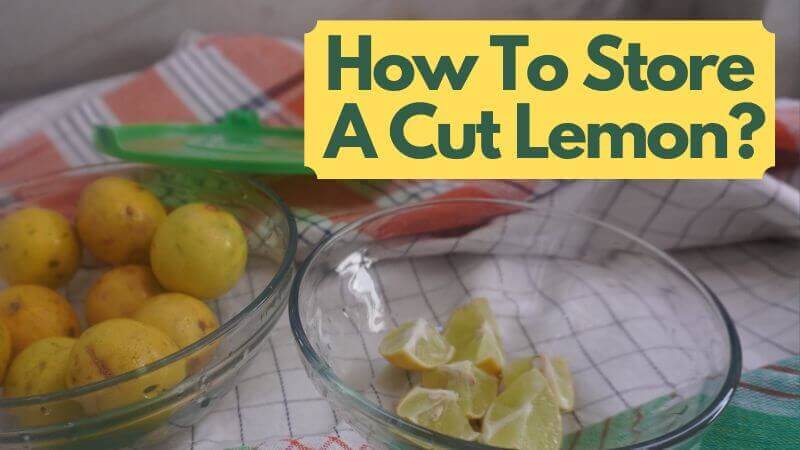When life gives you a lemon, make lemonade. This witty expression was coined by Hubbard many moons ago, but it is just as relevant as it was yesterday.
This phrase is often used to encourage optimism in the face of misfortune.
But you know what? You don’t always have to make lemonade. Yes, you don’t – as long as you know how to store the lemons correctly for future applications.
In this blog, I’ll shine a light on the correct way to store cut lemon, so it doesn’t get shriveled and dry. Keep reading to know!
Table Of Content
How To Store A Cut Lemon?

Sliced and halved lemons should be stored in a ziploc bag or an airtight container for up to 5 to 7 days in the fridge. Wrapping cut lemons in a plastic wrap also keeps them from drying out.
Since lemons are acidic in nature, they have a very short life once they lose moisture. Protecting the cut side from the air helps to reduce water loss and oxidation.
This particular step is going to be painstaking, but if you want to go the extra mile, hear me out. What you’re gonna do is wrap each wedge with a plastic wrap, pressing it firmly and directly against the pulp and squeezing out as much air as possible.
Can You Freeze Lemons? Use This Hack!

Yes, of course. You can freeze lemons. As a matter of fact, frozen lemons are easier to zest than your regular lemons. Place whole lemons in a freezer-safe bag and remove as much air as possible before sealing.
This way, you can store lemons for three to four months.
For thawing, let them sit in cold water for about 10 minutes or zap them in the microwave for a couple of seconds.
Now, let’s talk about the hack. It’s pretty straightforward.
Freeze the lemon juice in ice cube trays. Once frozen, transform the lemon juice cubes into the freezer bag and seal.
So, what can you do with the lemon zest? Freshly grated lemon zest loses flavor quickly and may even become a bacterial risk after a few days.
Thankfully, you can freeze lemon zest, too,
Place tightly packed spoonfuls on a baking sheet lined with parchment paper. Once frozen, transfer the zest lumps to a freezer-safe container and freeze again.
The frozen zest can be used for the next three to four months.
Sometimes, lemons are brown and dry right off the bat – immediately after you cut them. Why does that happen?
Let’s find out.
Why Are My Lemons Brown And Dry When I Cut Them?

The three most common reasons behind lemons turning brown and dry right even when you cut them freshly are:
- Boron deficiencies
- Mineral deficiencies
- Pests
Any of these 3 could be the guilty party behind your lemons turning brown and dry. Keep in mind that you might not always be able to tell what caused lemons to go brown on the inside, but understanding the potential causes gives you a better chance.
Let’s read on.
Boron Deficiency
Boron deficiency is the most common reason behind lemons turning brown and dry.
While I could have explained it under a more comprehensive heading like “nutritional deficiency,” this condition is so rampant that it demands a separate section.
You can test for boron deficiency using a soil test kit.
Mineral Deficiency
If your lemons have a mineral deficiency, they’ll turn brown again.
What’s tricky is that the lemon might not show any signs of a problem on the exterior since the deficiency hampers the fruit as it grows and doesn’t have to access the flesh from the outside.
Pests
Spined citrus bugs are only known to attack citrus fruits. The bug pierces through the lemon’s rind, scooping its mouthparts into the fruit to suck out the juices.
This hampers the protection that the rind usually provides the fruit, leaving the inner part prone to decay. To counter this problem, the idea is to control the nymphs as soon as the winter starts.
Now that you know everything there’s to know about storing lemons, you don’t always have to make lemonade when life gives you lemons. Hehe. Instead, you can store it in the fridge and use it only when necessary.
Recommended Readings!
How To Store Cut Aloe Vera? Here’s How You Do It!

